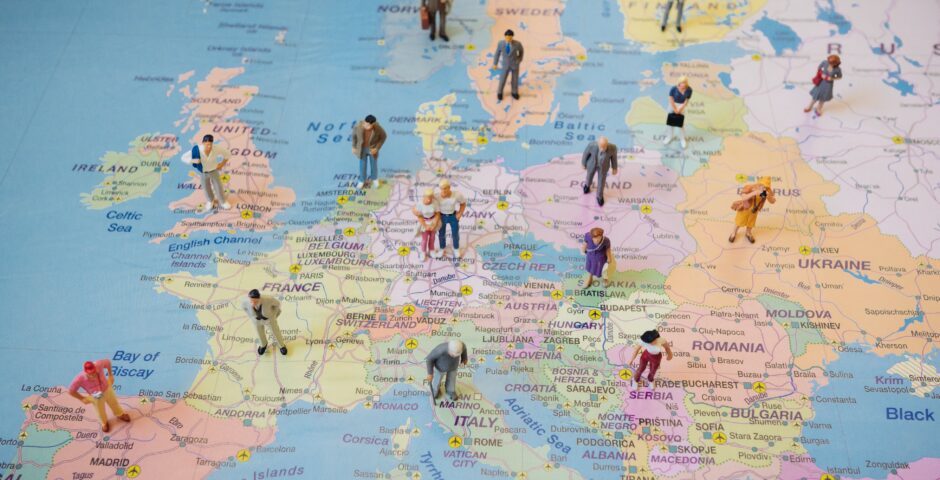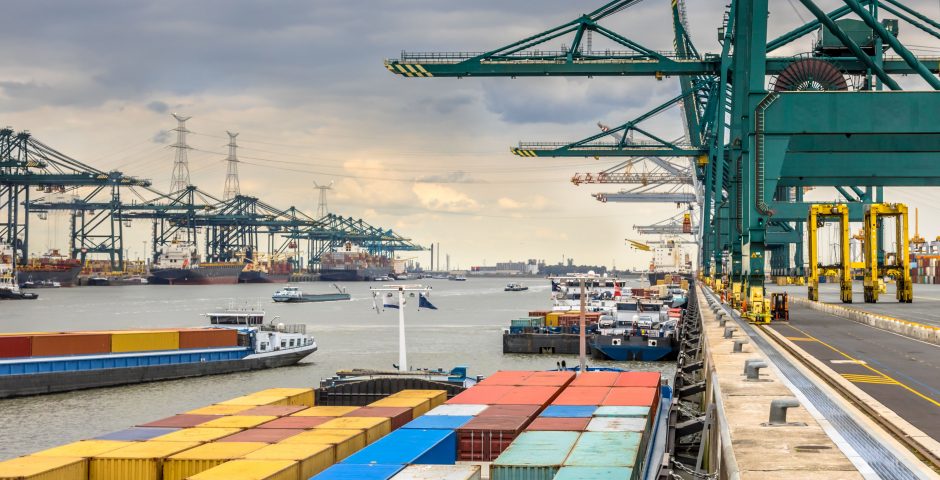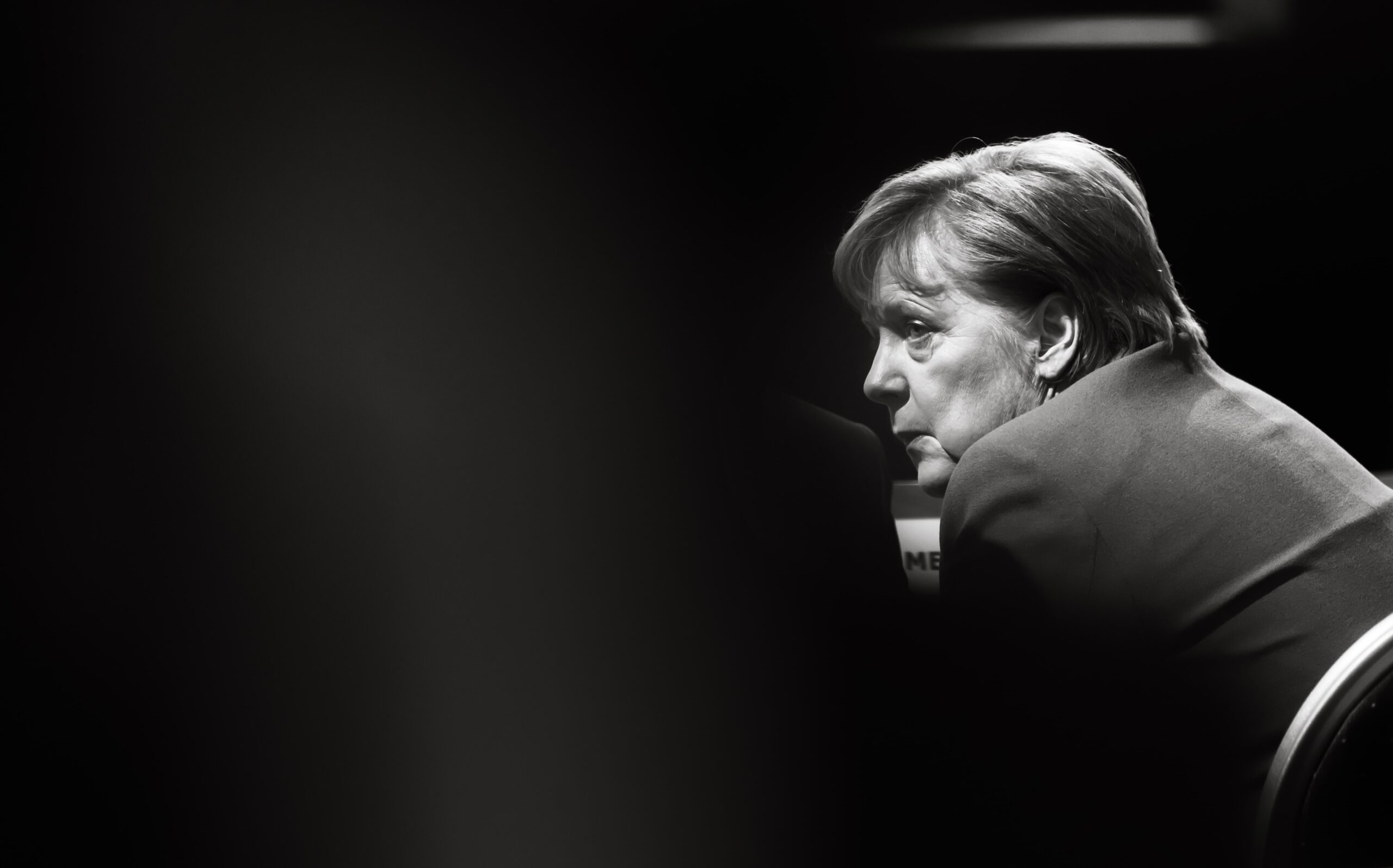Conference on the future of Europe: The EU by and for the people

By the People, For the People
8,600 ideas, 14,900 comments, 31,000 participants and 3,180 events constitute an unprecedented EU-wide event —the conference on the future of Europe.
It was initiated to include European citizens in the process of possibly reforming the European Union. The conference is structured according to the bottom-up approach and involves various platforms and formats to enable citizens’ participation.
The first participatory tool is a multilingual digital platform where information and documents on the process of the conference are provided, the basic rules for participation are laid out as well as the conference’s outcomes are announced. The themes of the conference are:
- Democracy in Europe;
- Values and Rights, Rule of Law, Security;
- Climate Change and Environment;
- Health;
- A stronger economy, social equality, and employment;
- Digital change;
- Education, Culture, Youth, and Sport;
- The EU in the world and
- Migration.
The second participatory tool is the European Citizen’s Forum, in which four groups (panels), consisting each of 200 citizens, selected based on representativity, discuss the above-mentioned topics. The most important decisions are then taken in the plenary of the conference on the future of Europe. In total, 449 representatives of various EU stakeholders and institutions, including members of the Forum, take part in formulating recommendations, which are to be handed to the executive board. The executive board observes the whole process of the conference, then agrees unanimously on the recommendations and reports back in a final step to the joint chair consisting of Ursula von der Leyen (President of the European Commission), Janez Jansa (Current holder of Presidency in the Council), and David Maria Sassoli (President of the European Parliament). Besides all of these bodies, a secretary was also formed to support the smooth running of the conference.
What happened at the conference on the future of Europe?
The conference is founded in the signed joint (European Parliament, Council presidency, and the Commission) declaration of 10th March 2021. First preparations were initiated by the executive board in the same month, shortly followed by the launch of the citizen’s platform, as well as the digital platform in April. An inaugural session was held in the beginning of May. In June, the plenary convened for the first time.
The next important event was the publication of the first interim report, including all citizen’s contributions between 19th April and 2nd August. From September onwards, four European citizen’s panels were held. The second plenary meeting took place on 23rd October in the European Parliament in Strasbourg. Eighty representatives of the panels shared their working results. Representatives also had the chance to present their outcomes at the European Youth Event. In addition, the multilingual digital platform’s second interim report was disclosed. A second set of European Citizen’s panels followed in November. The last plenary of 2021 was held on the 17th and 18th December. The conference will come to a close by spring 2022.
Topics EU citizens are concerned with
The focus of the first part of the conference (until the 7th of September), chosen by its participants, was on democracy in Europe and climate change. General ideas put forward were, for example, a sustainability tax, the reduction of traffic on European streets, a stronger EU health system, a common European basic income, European-wide tax cohesion, the creation of a European Army, the investment in digital education, a federalization of the EU, a stronger integration of migrants and increasing youth employability (for more see The first interim report (August 2021) & The second interim report (September 2021) )
Some of these ideas may seem quite ambitious and progressive, but it might be exactly what is needed to give EU policymaking the necessary push into the future. The downside to these new ideas might be that they are not as easily implemented as one might expect, given that various EU-wide opinions tend to slow down policy processes.
Can the conference on the future of Europe contribute to more involvement of its citizens?
One could say that the conference represents a promising step towards enhancing EU citizens’ involvement. However, most EU scholars look at the conference from a more critical point of view. Democratic legitimacy and citizen’s participation has not been one of the EU’s strong suits. In fact, the EU’s democratic deficit has been one of the most debated themes in scientific discourse. Hence, this event, which is practically made for the citizens to help shape the future of Europe, is at times not taken seriously.
There are certainly some open questions:
Are European citizens even aware of the conference and do they know how to contribute?
On a personal note, I would say, no. When writing this article, I talked about the conference with friends and family, and most of them did not know it existed. Similar observations were made by the EU Observer. According to the media outlet, it is very doubtful whether EU citizens are currently in the mindset for such a conference and are in general informed on EU governance deficiencies. Hence, it is questionable if this mostly unknown EU initiative can even reach the goal to incorporate the EU population’s ideas.
What kind of quality will these recommendations have and are these even implementable?
Recommendations that innovative usually require a change of the European legislative basis. This basis is referred to as the Treaty of the European Union. However, treaty changes are often not looked well upon, especially by EU member states. Some newspapers even proclaim statements such as ‘Don’t mention the T word’ in relation to the conference. The ‘t-word’ stands for the Treaty of the European Union. These treaty changes can only be approved by unanimous vote enacted by all 27 member states. However, in all drafts for the conference, the Commission tried to avoid the t-word to evade any carping. The European Parliament and its members even go as far as saying that the conference is omitting the ‘institutional dimension’ on purpose.
Will the recommendations that are intended to be the final product of the conference be implemented for real?
The joint declaration kicking off the conference is not binding and leaves room for discretions. In detail, it only touches upon what the conference is intended to do, how it is to be organized, what topics are to be discussed, and what values to be adhered to. The only two sentences with a slight binding notion state the following:
“A feedback mechanism will ensure that the ideas expressed during the Conference events result in concrete recommendations for EU action. (…) The final outcome of the Conference will be presented in a report to the Joint Presidency. The three institutions will examine swiftly how to follow up effectively to this report, each within their own sphere of competences and in accordance with the Treaties.”
Summing up, recommendations will be made following the conference. That is good for starters, however, recommendations do not need to be followed as they are of a non-binding nature. So, each institution is inclined to decide themselves which recommendation can be ‘swiftly’ followed and then be implemented in such a way that the treaties do not need any changes, proving the point made in the prior paragraph. Put frankly, change resulting from the conference is unlikely.
Some final, encouraging words on the conference
Do not let my elaborations discourage you from engaging with the conference. This article does not only serve the purpose of deconstructing the initiative but rather highlight its presence, explain its function, and show positive as well as negative perspectives, bringing the reader closer to understanding European politics and related discourse.
That might leave you with the question, how can I, as a European citizen, participate nonetheless?
Participation is possible for every EU citizen. Next to engaging online via the multilingual digital platform, it is possible to take part in national events organized for the purpose of enabling an EU-wide debate. It is even possible to launch an event by oneself. Most of these events will be held online due to the rising COVID-19 cases in Europe. So, have a lookout for corresponding events and feel free to fill the EU institutions in on your ideas for the future of Europe.
Sandra Zwick has previously obtained a bachelor degree in Economic Sciences at Matrin-Luther University Halle/ Wittenberg and a dual master degree in European Governance at Masaryk University and Utrecht University.
Image: Shutterstock




